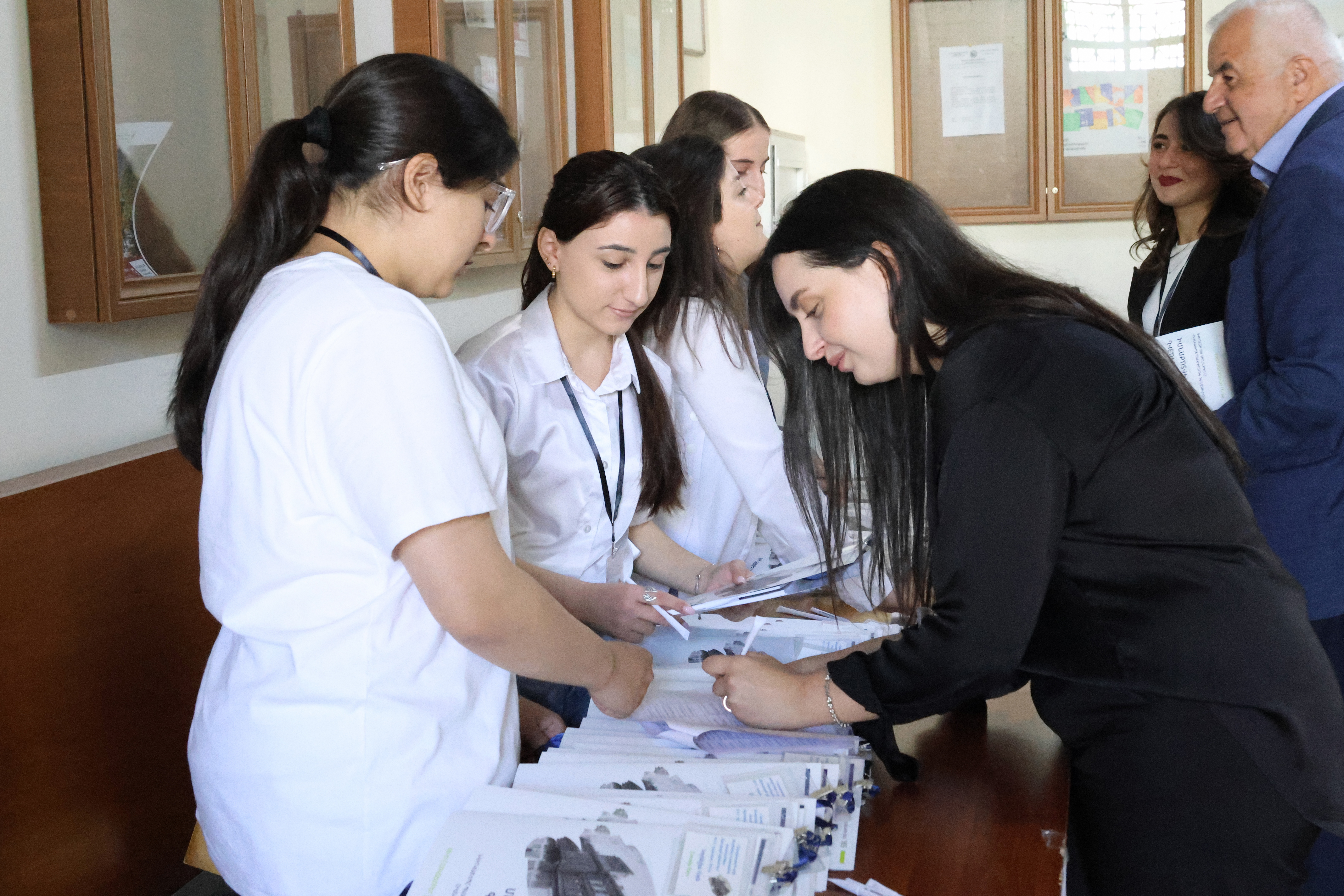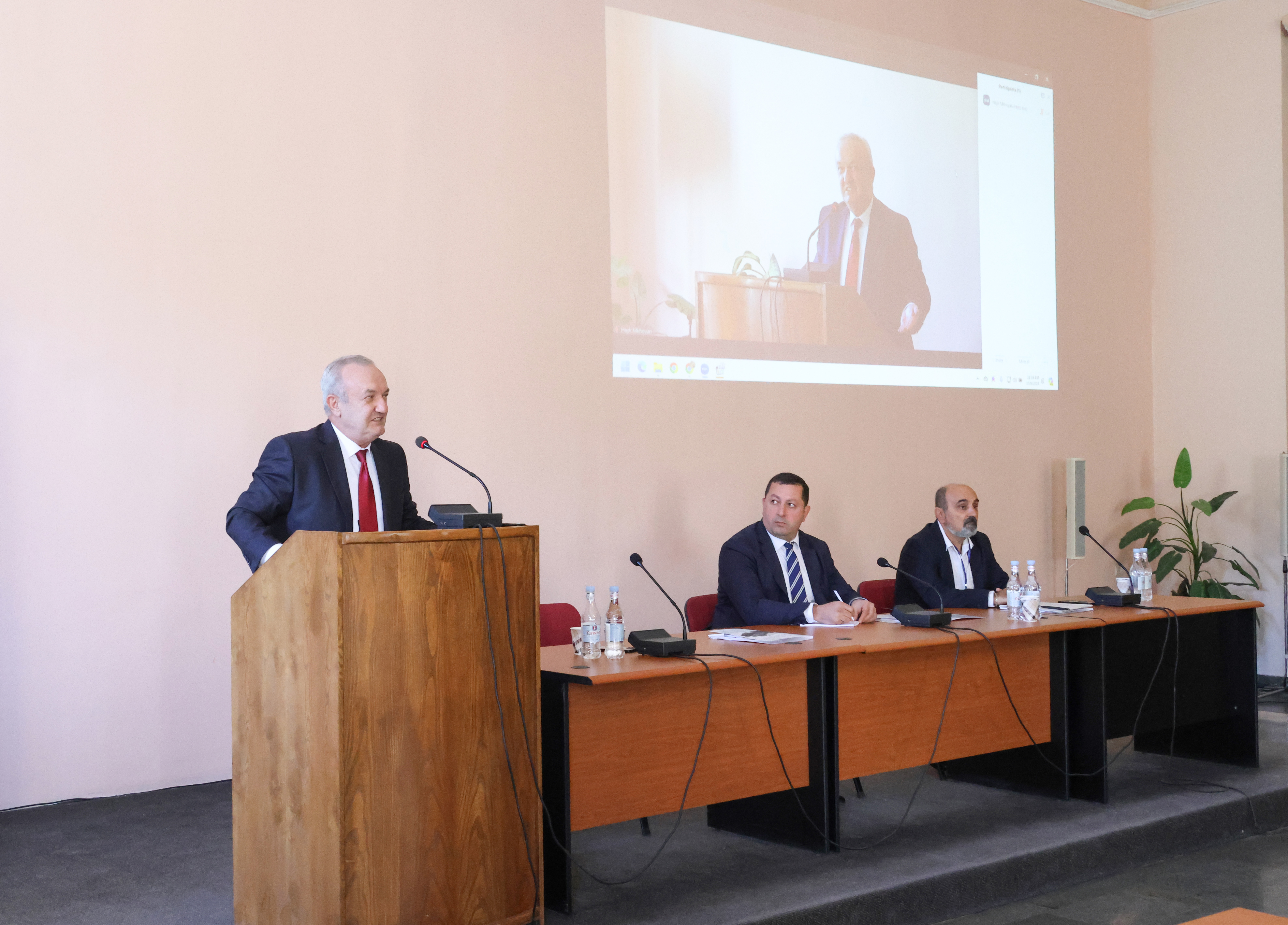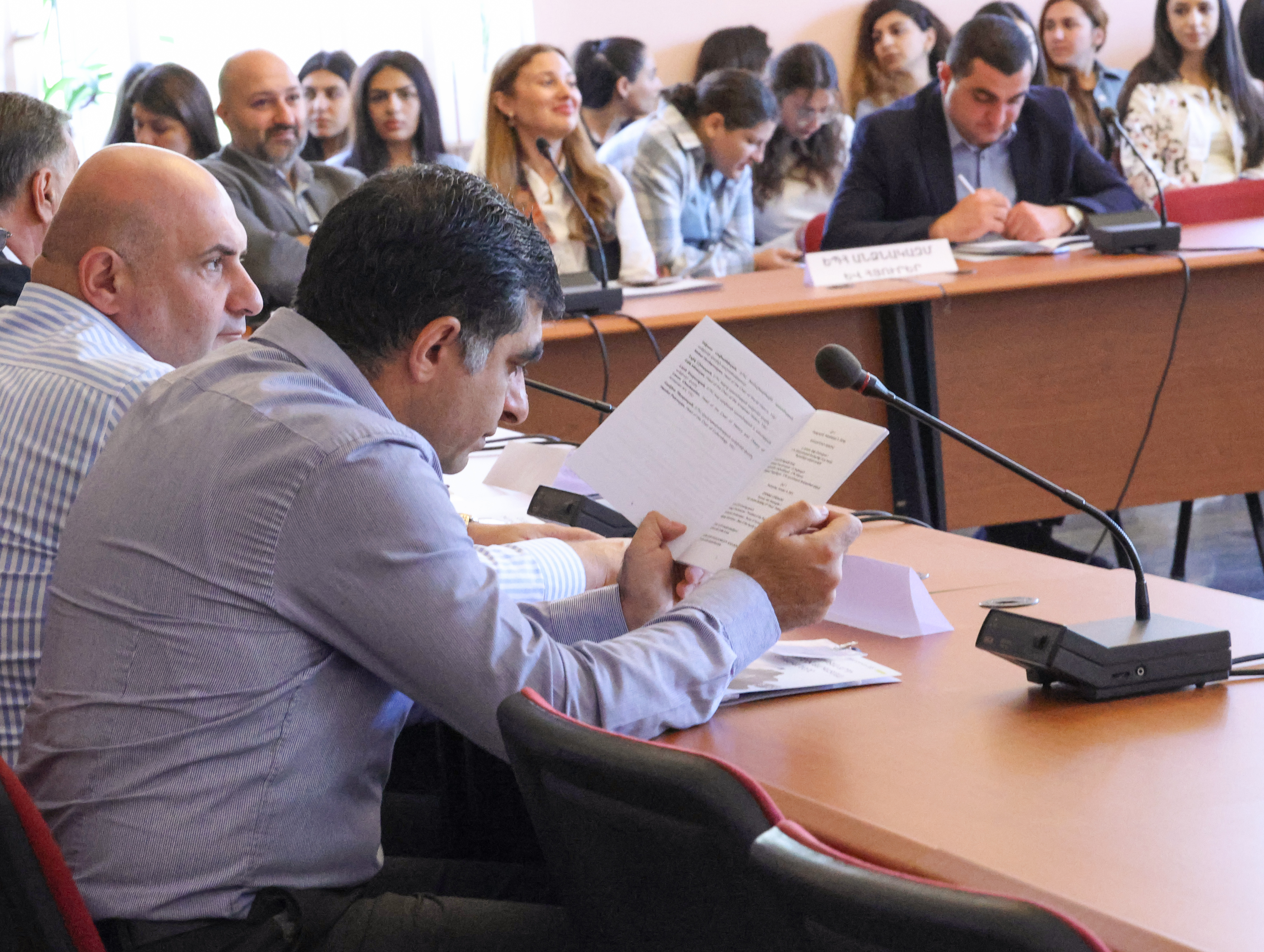October 10, 2024 | 14:30
Science
Education
Events
Exploring heritage of Armenian people throughout history: International conference at YSU
An international conference titled "Current Problems and Prospects for the Development of Armenian Studies" has been launched at YSU, dedicated to the 105th anniversary of the History Faculty.

YSU Rector Hovhannes Hovhannisyan, welcoming the participants of the conference, emphasized that the scientific events regularly organized at the initiative of various faculties in the university foster the circulation of scientific ideas and expand the scope of expert research.
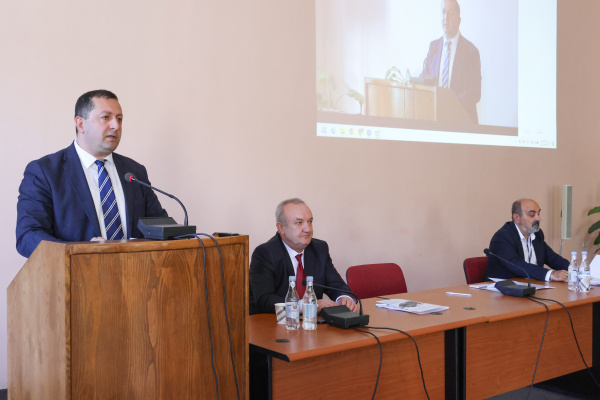
"When considering the diverse topics of this conference, dedicated to the 105th anniversary of the establishment of the History Faculty, it becomes clear that there is still much work to be done in the field. In our meetings with the faculty, we consistently emphasize that historiographical issues significantly influence the development of humanitarian mindset. This conference is crucial for discussing the challenges facing Armenology, addressing critical issues, and seeking solutions, while also fostering connections among researchers. YSU continuously supports the collaboration of Armenologists from various countries and promotes the active development of Armenology," said the YSU rector.
In this context, he emphasized the importance of objectively analyzing existing problems and approaching various issues critically.
Hovhannes Hovhannisyan also noted that the current government allocates significant funding to Armenian studies centers to expand and continuously develop scientific and expert research in the field. He added that presenting Armenian studies to the scientific community in a foreign language is a valuable approach, as it helps make the Armenian scientific mind accessible to the world.
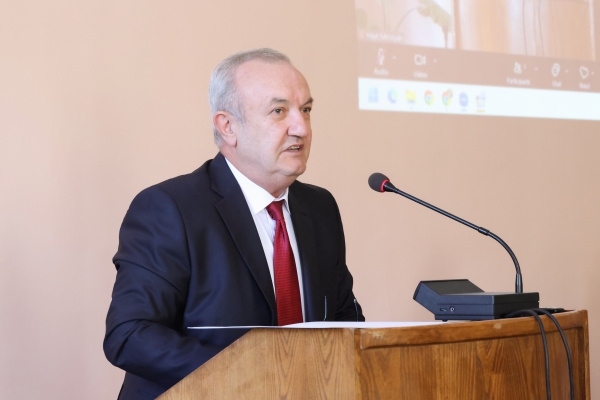
YSU Professor Vahram Dumanyan, Adviser to the President of the Republic of Armenia, presented the message of the President of the Republic of Armenia on the occasion of the 105th anniversary of the establishment of the History Faculty.
V. Dumanyan emphasized that the History Faculty is one of the first at YSU and plays a key role in historiography and the development of various disciplines within Armenian studies. This faculty has faced the challenges of Soviet totalitarian control and censorship over scientific research for decades.
"Even under these challenging conditions, the History Faculty produced high-quality and up-to-date research in Armenian studies and related disciplines. Armenia's independence revitalized the development of science in the country. However, recent security challenges, regional developments, and the forced depopulation of Armenians from Artsakh, along with the circulation of false scientific 'justifications' of anti-Armenian policies, have made discussions on current issues in Armenology increasingly important for achieving both academic and practical results," said Vahram Dumanyan.
Mkhitar Gabrielyan, Dean of the YSU History Faculty, emphasized that despite limitations, the historical and Armenian studies developed in the 19th and 20th centuries are among the best.
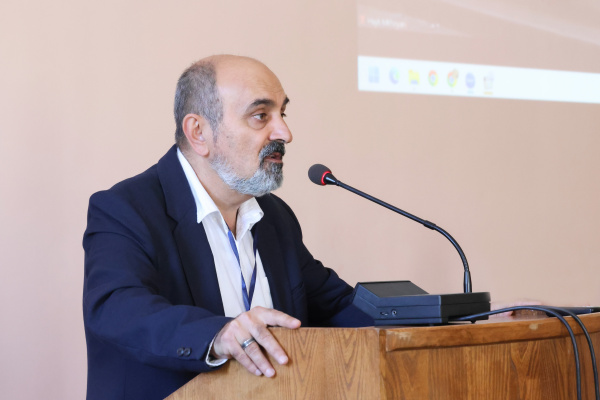
"The 30-plus years of independence should have been the most significant period for establishing a new paradigm in historiography, Armenian studies, and Armenian historiography. I believe the discussions at this conference will help us determine whether we have succeeded in this regard," said M. Gabrielyan, who also noted that historiography is a science grounded not only in numbers and facts but also in the heritage of the Armenian people.
The topics of the conference are related to different fields: Armenian history, Caucasian studies, ethnology, cultural studies.
The reports from the invited researchers at the conference cover a range of topics, including the functions of Armenology in the era of globalization, the study of the Urartian substratum of place names in historical Syunik, the role of colophons as historical sources, and women in the medieval culture of Artsakh according to khachkar and tombstone iconography. Additionally, cultural anthropology will explore the role of the Armenian Aghvank in the origins of Christianity. In the realm of Caucasian studies, discussions will focus on the revival of the "Great Turan" project and the challenges facing Armenia, as well as the theme "The Silk Road: The Role of Iran and Central Asia in the Economic and Cultural Developments of the Ancient World."
Around 100 participants are presenting reports at the conference, representing leading research institutions from Armenia and various countries, including the USA, Georgia, France, Russia, Italy, Poland, Germany, Iran, and England.




